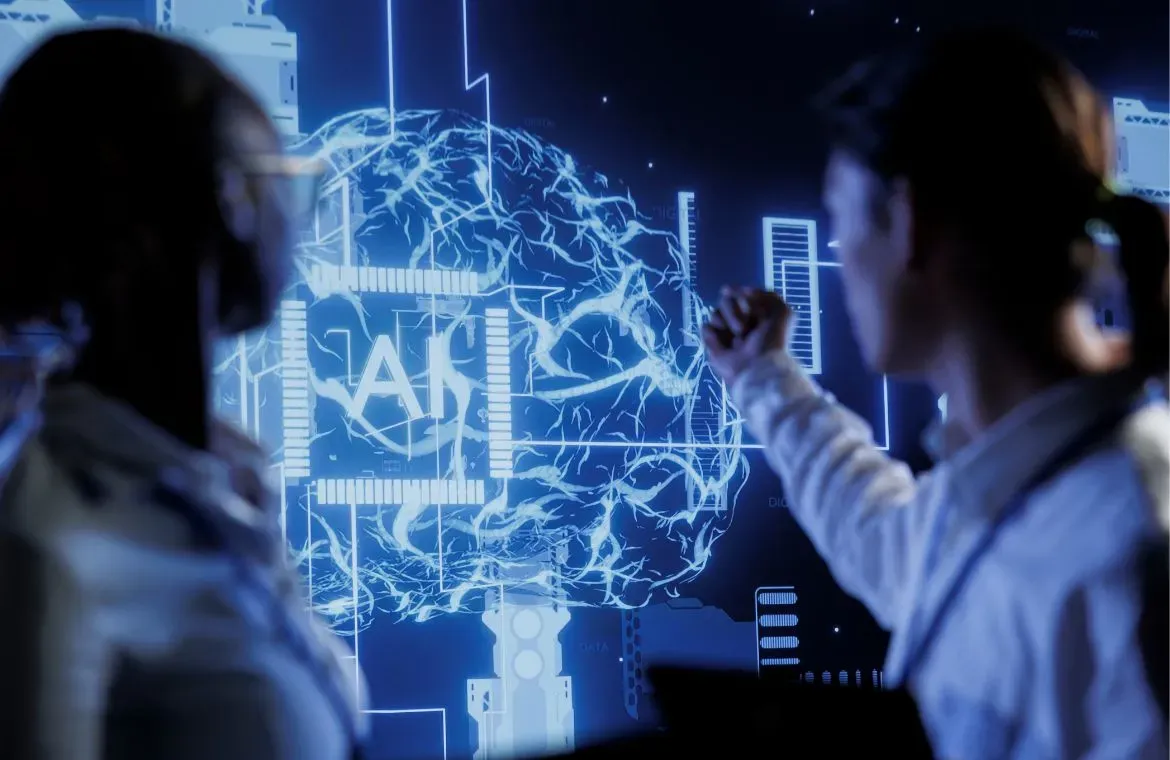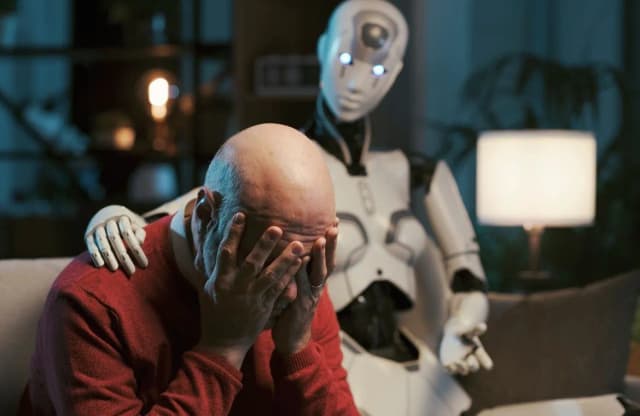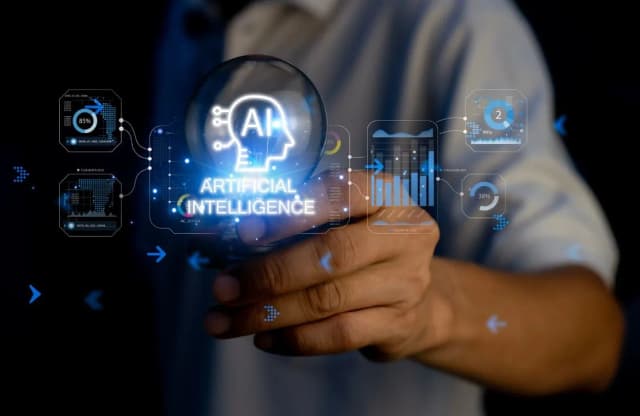AI and Job Market: Exploring Career Opportunities

Artificial Intelligence (AI) was once assumed to be a storm on the horizon that was expected to create destruction. Automation is replacing human jobs, machines are taking over, and millions are left jobless. However, as this storm approached, instead of destruction, transformation happened.
So, AI was like a monsoon that was assumed to cause floods but instead nourished the land and made things better. AI reshaped the job market and created new job roles that had never existed before. Abraham Lincoln once said, “The best way to predict the future is to create it,” and in 2026, AI is just doing that.
It is transforming industries, and amidst these futuristic technologies, old job roles do not hold any significance. With the advancement of technology, professionals are expected to upskill to be ready for what the future holds.
The Paradigm Shift in Careers
AI emerged from being a buzzword to a major disruptor in the business world. Evolution is the only constant in human life. This statement is more pertinent to the technology that constantly shapes our lives today. Every segment of business across operations, marketing, sales, research and development, finance, human resources, and services is using AI-enabled applications and tools to redefine the future of work. This calls for a radical shift in the way technology is managed within various industry functions, with new knowledge, new skills, new capabilities, and newer ways of solving problems.
According to the World Economic Forum, AI is expected to create 97 million new jobs globally in 2026. However, it comes with its challenges - automation will kill a number of jobs in the market; thus, the people indulged in these jobs will become jobless. Additionally, the new jobs in the AI era will require people to have AI skills. Thus, the people with these skills will be in high demand.
Take India, for example, which is a booming hub for tech professionals. Moreover, India is ranked second in the QS World Future Skills Index 2026, after the US, in terms of preparedness in job markets for futuristic technologies like AI. This demand is fuelled by industries like hospitality, healthcare, retail, and finance.
Top AI-Driven Job Roles
So, here’s a glimpse of all the jobs in 2026:
Machine Learning Engineers
Do you have a background in data science and applied research? Then, you would be ideal to handle AI projects. Of course, you will need to build knowledge of AI programs too. Similarly, the knowledge of programming languages (Scala, Java, Python, etc) will help.
A Machine Learning Engineer helps set up and maintain platforms for machine learning projects. The role requires an amalgamation of knowledge of machine learning, computer programming, neural networks, deep learning, and analytical skills with software development tools, cloud applications, and agile development practices. Strive to bring natural language processing and predictive models too into play when handling humongous data sets.
AI Ethicists
As AI becomes an increasingly important technology in the business world, the need for ensuring ethical use of this technology will also increase. AI is all about using raw data and transforming it into actionable insights. However, there can be some sensitive data, and businesses need to ensure its security. Additionally, the concept of ‘black box’ refers to the ability to explain how the AI tools come up with certain outcomes. This raises the question of the credibility of the outcomes.
Such concerns associated with the use of AI need to be addressed, which can only be done by ensuring data privacy and transparency. Thus making AI ethicists important professionals in the business world.
AI Product Managers
Product managers are the people who bridge the gap between technical professionals and business stakeholders. Sensing the growing demand for AI tools and systems, it is expected that more businesses will be interested in the development and sale of AI products.
Thus, AI product managers will play an important role in these businesses and help them align AI solutions with organizational goals.
Robotics Engineers
Robotics is not limited to the manufacturing industry. Now, the healthcare, hospitality, and agriculture industries are also showing interest in incorporating AI-powered robots in their business processes.
So, robotics engineers are expected to play an important role in aligning business goals with AI-powered physical machinery to enable them to solve real-world problems.
Business Intelligence Developer
Your role here would be to study and analyze complicated data sets to identify market and business trends. Your company would expect you to be the major decision-maker, thereby enhancing its effectiveness and profitability.
As a leader, you will manage tasks (design, model, and maintain) related to complicated data. You may access everything via the cloud. Apart from your basic qualifications, you will need additional certifications, as well as some hands-on experience. In other words, you must have a good knowledge of BI technologies, data mining, data warehouse design, and SQL (server reporting services, server integration services, and queries). If you wish to advance your career with AI as a leader, you may consider the AI for Leaders Course. This course is designed to enable participants to foster an AI-positive culture in their organizations.
Research Scientist
It helps to have good knowledge about deep learning, machine learning, benchmarking, and distributed computing. Knowledge of parallel computing would serve as a splendid bonus. Then again, you must display extensive experience in handling graphical models, computer perception, natural language processing, and reinforcement learning.
Now, professional responsibilities depend upon your area of interest or your previous experience in research.
Generative AI Engineer
These professionals have the expertise to develop models that can create new content, including text, videos, and images, which can significantly contribute to creative industries. Consider enrolling in an advanced IISc Generative AI Course. This course equips you to deploy cutting-edge Generative AI solutions for real-world language.
Enrolling in this course can open other career opportunities, too, including - AI prompt engineer, ML engineer, senior NLP engineer, and AI architect. If you do not wish to commit yourself to this extensive course, you can also consider the TalentSprint Generative AI Certification Course.
Among the above-mentioned job roles, some of the highest-paying AI jobs in the world include - AI Research Scientist, Business Intelligence Developer, and Machine Learning Engineer. Their high demand is due to the fact that they play crucial roles in the research, design, and development of AI products, which is the need of the hour. So, it is no secret that these professionals currently have the highest job security in the market.
AI’s Impact on the Job Market: Evolution, Not Extinction
AI integration is not associated with mass unemployment; rather, it will drive the transformation. So, AI is not here to steal your job but will augment new capabilities. It will be seen as creating demand for new-age job roles and hybrid models.
Take the customer service industry - AI-powered chatbots will do the job!
What will human personnel do? - Take up many critical queries that can’t be handled by the chatbots. Thus, offering timely solutions and eliminating waiting time for customers improves customer satisfaction.
Similarly, AI automation will replace the jobs involving crunching tasks, while demand for professionals skilled in data interpretation and AI oversight will improve tremendously. Why? - Their insights will be significantly helpful in improving the decision-making process.
That’s where the roles like AI specialists, data scientists, and AI product managers come into play. Organizations are hiring AI architects and machine learning engineers to build and deploy AI solutions. However, AI solutions are not limited to technical fields; they are revolutionizing non-technical fields too. For example:
- Cybersecurity Analysts use AI-powered detection systems to predict and prevent the threat.
- HR Professionals utilize AI-powered systems to analyze resumes, identify the most relevant candidates, and determine if they can fit into the organizational culture.
- Marketing Professionals are using AI to analyze customer sentiments and come up with innovative campaigns that best align with customer preferences.
- Healthcare Professionals use AI to diagnose and create treatment plans. AI for Digital Health Course is a certification program that is best for healthcare professionals who wish to enhance their AI expertise and utilize this technology for better healthcare outcomes.
The biggest challenge at the moment is the skill gap. Industry reports indicate that more than 50% of working professionals would need to reskill and upskill to stay relevant in the job market in 2026. Any solution? - Explore different options to upskill, enroll in AI courses, and embrace and learn to work alongside AI.
Closing Thought: Prepare For the Future
AI is not here to make you jobless but to reshape the job market. The professionals who wish to stay relevant in the current job market need to upskill. The key here is to adapt, innovate, and collaborate with AI rather than fear it.
In the words of Bill Gates, “Advance in technology is based on making it fit in… so it’s part of everyday life.” AI is doing the same, fitting into business processes and becoming part of the business world.
What do you need to do? - Embrace AI and start working alongside it. Enroll in AI courses and be ready for the future.

TalentSprint
TalentSprint is a leading deep-tech education company. It partners with esteemed academic institutions and global corporations to offer advanced learning programs in deep-tech, management, and emerging technologies. Known for its high-impact programs co-created with think tanks and experts, TalentSprint blends academic expertise with practical industry experience.



